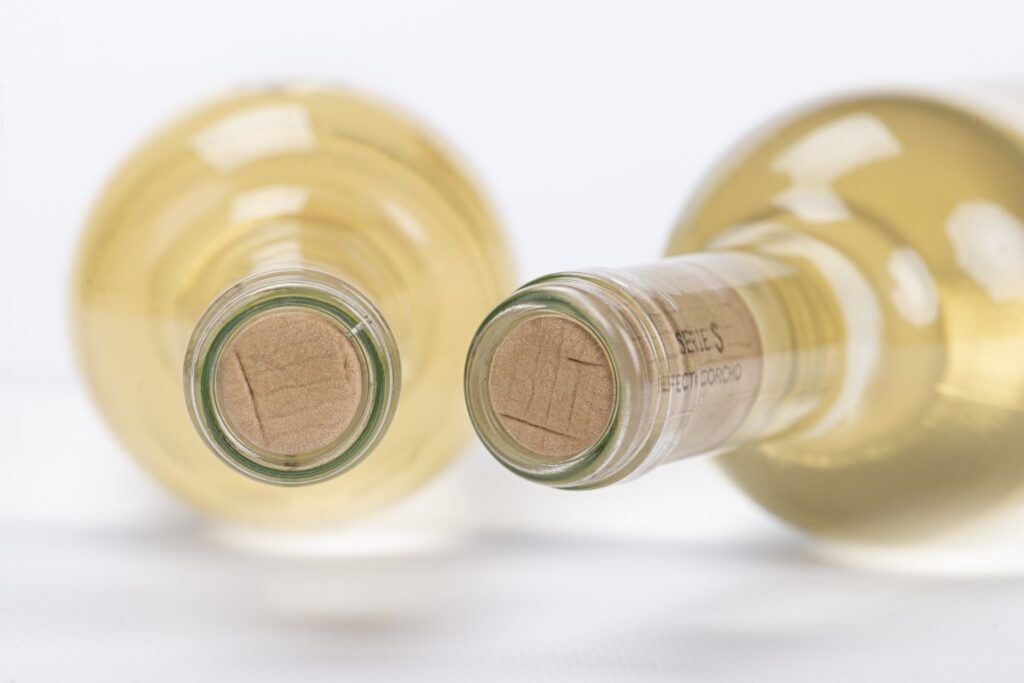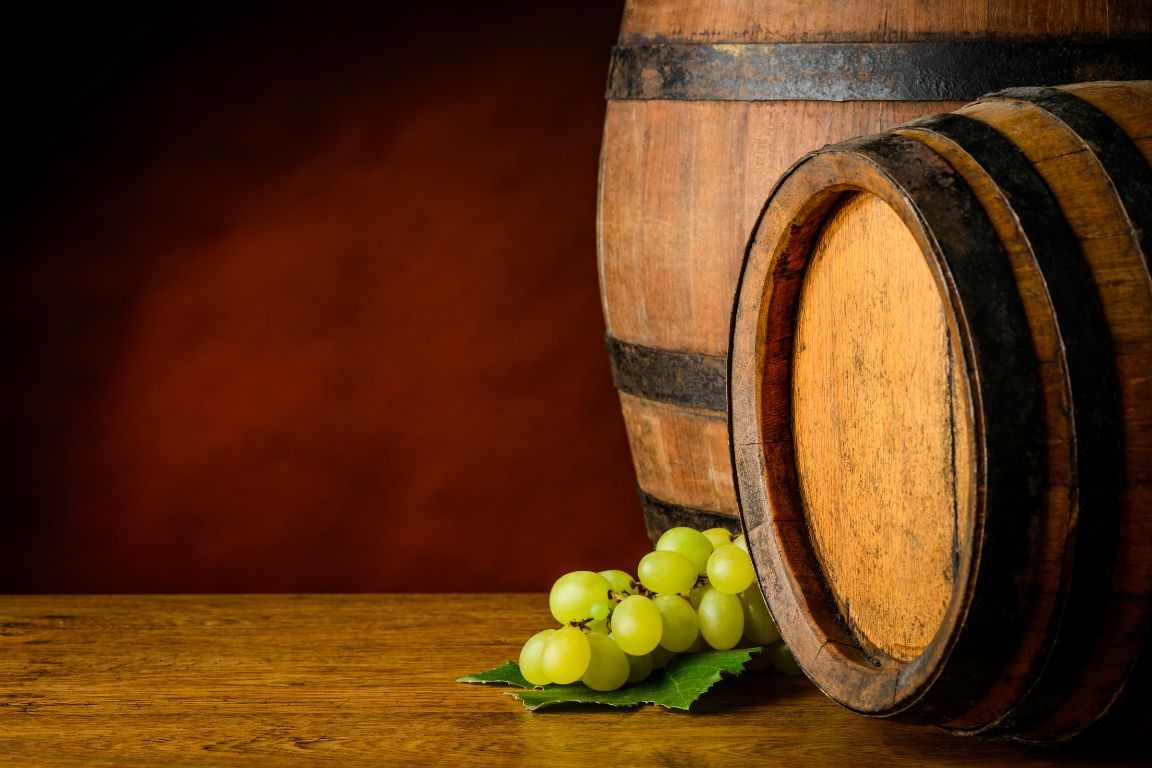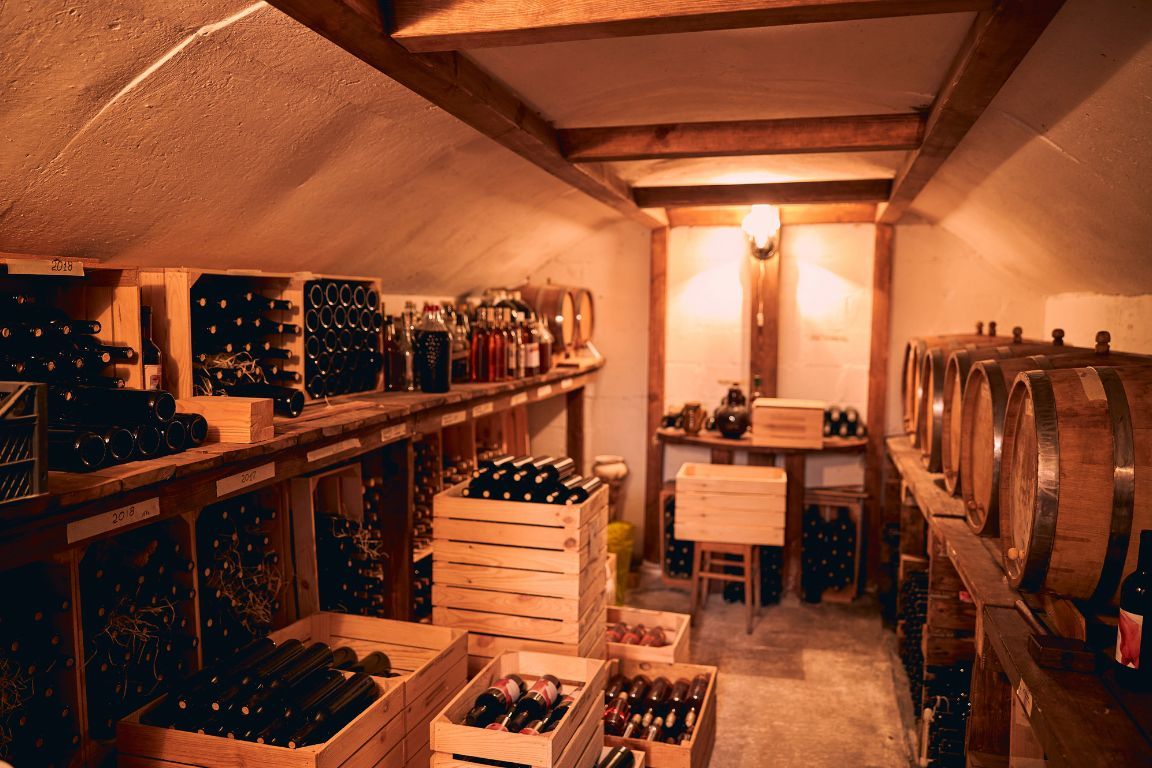The synthetic cork, an innovative material that has revolutionized the bottling world, is a modern alternative to the traditional natural cork. This material, created through advanced manufacturing processes, has gained popularity in the wine and other alcoholic beverage industries due to its various advantages and unique characteristics.
At Excellent Cork, we are dedicated to manufacturing synthetic stoppers for wines and spirits, so we know the virtues of this material and in this article, we will detail them for you.
Advantages of Synthetic Cork for Wine
In recent years, synthetic cork for wine has emerged as an innovative and reliable alternative to natural cork stoppers in the wine industry. This material has gained popularity due to its ability to address the challenges and concerns associated with traditional cork.
Its main benefits are:
- Consistency in quality and sealing: they offer remarkable uniformity in terms of quality and sealing characteristics, ensuring more reliable protection for bottled wine.
- Reduction of contamination risk: they help minimize the risk of wine contamination by TCA, molds, and other undesirable compounds that can negatively affect the aroma and taste of the drink.
- Improved durability: they are resistant to handling and aging, reducing the incidence of leaks and breakages during storage and transport.
These advantages, combined with ease of use and attractive cost-benefit ratio, make them an increasingly popular choice among winemakers.
Types of Synthetic Corks
To adapt to different types of bottles and sealing needs, cork manufacturers use different techniques to create them.
The most common types of synthetic corks are:
- Spiked: they are conical at one end and are used to seal wine bottles. The spike provides a secure fit in the bottle neck, ensuring an airtight seal and protecting the contents from oxidation and contamination.
- Cylindrical: they have a uniform cylindrical shape and are used in various applications, from wine bottles to spirit and oil bottles.
- T-shaped: they have a shape similar to natural corks and are designed to mimic their appearance. They have a wider head that fits the bottle neck and provides an aesthetic presentation similar to natural cork.
These are just a few examples; the choice of the most suitable one depends on factors such as the type of wine, the producer’s preferences, and storage conditions.
Uses of Synthetic Cork in the Wine Industry
The primary use of synthetic bottle stoppers for wine is to seal them. This material is capable of maintaining the aroma and freshness of the wine, thanks to its ability to provide an airtight seal that protects the wine from oxidation and contamination.
By offering an effective barrier against air and other external elements, they help preserve the wine’s organoleptic qualities over time.
Additionally, their versatility and resistance make them an ideal option for winemakers who seek to ensure the quality and integrity of their products from the moment they are bottled until they reach the consumer’s glass.
Applications of Synthetic Cork Beyond Bottle Stoppers
In addition to providing excellent sealing for wine bottles, the synthetic cork material is used for other applications related to this sector.
For example:
- Barrel lining: it is used as a lining for oak barrels during the wine fermentation and aging process. This lining provides effective thermal insulation, helping to maintain stable temperature and humidity inside the barrel. Additionally, it helps minimize the transfer of undesirable flavors from the oak, allowing the wine to develop and mature optimally, preserving its unique characteristics.
- Sealing of sparkling wine bottles: they are a perfect option for sealing sparkling wine bottles, such as champagne and cava. This is due to their ability to effectively maintain the internal pressure of the bottle, ensuring that the wine retains its effervescence and freshness during storage and transport. Additionally, they offer a secure and airtight seal, protecting the wine from oxidation.
These examples show the versatility of this material in the wine industry.
How Is Synthetic Cork Made?
The manufacturing process of the synthetic cork stopper involves several phases that we detail below:
- Selection of raw materials: synthetic polymers, resins, and additives are carefully chosen.
- Mixing: the raw materials are combined in precise proportions to ensure uniform distribution.
- Extrusion: the mixture is heated and molded through a nozzle to shape it.
- Curing: the synthetic cork undergoes a curing process to improve its physical and chemical properties.
- Cutting and finishing: once cured, it is cut and processed according to the final product specifications.
Comparison Between Synthetic Cork and Natural Cork
Natural cork and synthetic cork coexist harmoniously, although one has come to replace the other, the truth is that both are widely used; let’s see a comparison between them:
- Origin and composition: while natural cork comes from the bark of the cork oak, synthetic cork is made from polymers and other materials without the need to cut trees.
- Physical properties: natural cork is known for its elasticity and porosity, which allows it to expand and contract naturally without compromising the bottle’s seal, while synthetic cork tends to be more uniform in structure and less porous, which may slightly affect its ability to adapt to environmental changes.
- Cost and availability: natural cork is more expensive due to its extraction and manufacturing, and its availability is limited compared to synthetic cork, which can be produced in large quantities consistently.
Both have their own applications and benefits in the wine industry. The choice between synthetic bottle stoppers or natural cork stoppers will depend on the producer’s and consumer’s preferences.
Is Synthetic Cork a Sustainable Alternative?
It presents itself as a more sustainable option than natural cork, as it avoids the extraction of cork oak bark, thus promoting the conservation of forests and biodiversity.
Additionally, its production can be more resource and energy-efficient, and it can be recycled, reducing its environmental impact. We can conclude that synthetic cork offers significant environmental benefits and can contribute to a more sustainable future.
If you need customized sealing solutions for your wine, spirit, oil bottles, etc., at Excellent Cork, we are your trusted supplier.





